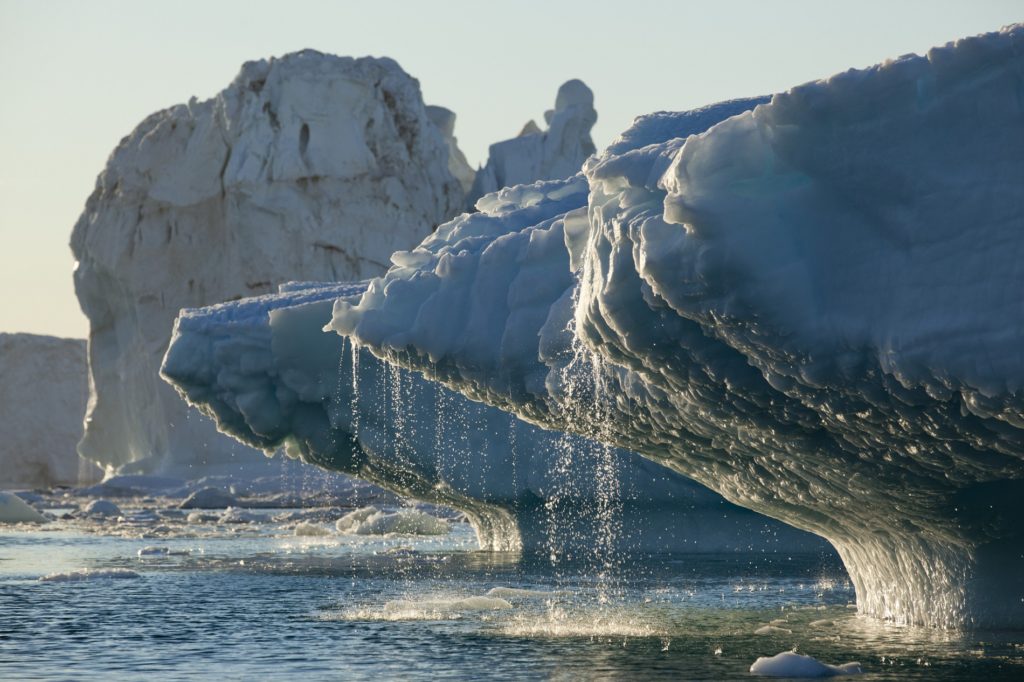
Executive Director & Senior Fellow
Head, Maritime Affairs Program
Cover Image Credit: South China Morning Post, Stephen Case (Use Permission Granted)
In August 2019, then US president Donald Trump made headlines with his surprising proposal to buy Greenland from Denmark. While the idea was met with scepticism and humour, it also reignited a historical debate and shed light on Greenland’s growing geopolitical significance.
As Trump prepares to re-enter the White House, his renewed interest in Greenland – and its implications for US foreign policy and Arctic governance – merits deeper examination.
The idea is not new. In 1868, US secretary of state William H. Seward, fresh from acquiring Alaska, expressed interest in Greenland and Iceland as part of America’s expansion strategy. In 1946, the Truman administration offered Denmark US$100 million in gold for Greenland, recognising its strategic importance with a Cold War emerging. While Denmark declined, the US was allowed to establish military bases on Greenland, including at Pituffik (formerly Thule), which remains a critical part of its Arctic strategy.
Greenland’s appeal lies in its immense natural resources, including rare earth minerals, and oil and gas reserves, as well as its strategic location between North America and Europe. As climate change accelerates Arctic ice melt, opening up new shipping routes and resource extraction opportunities, Greenland’s geopolitical value has soared. Trump’s interest in Greenland reflects a long-standing recognition of its importance in global affairs.
Under international law, the notion of buying Greenland raises complex questions. Greenland is an autonomous territory within the kingdom of Denmark. While Denmark retains control over foreign affairs and defence, Greenland’s government manages its internal affairs and has the right to pursue full independence through a referendum.
Buying Greenland would require the consent of both Denmark and Greenland’s governments. The transaction is likely to involve negotiations under international treaties and the United Nations Charter, which upholds the principle of self-determination. Greenland’s population of roughly 56,000 – predominantly indigenous Inuit – would need to be consulted, ensuring their rights and interests are protected.
While there is no modern precedent, analogous cases like the 1917 sale of the Danish West Indies (now the US Virgin Islands) offer insights into the legal and diplomatic challenges.
Trump’s proposal has elicited mixed reactions from Arctic stakeholders. Denmark’s government swiftly dismissed the idea, with Prime Minister Mette Frederiksen calling it “absurd” back in 2019. Greenland’s leaders echoed this sentiment, emphasising its autonomy and rejecting any notion of a sale. Other Arctic states, including Canada, Norway and Russia, are likely to have viewed Trump’s proposal with a mix of amusement and apprehension.

For Canada, Greenland’s proximity to its Arctic territories highlights shared security and environmental concerns, prompting a measured response. While Canada is unlikely to support the US proposal, it is likely to be viewed with a mix of caution and concern. Any such development would be closely monitored, with Canada emphasising the importance of multilateral cooperation, environmental stewardship and the protection of indigenous rights.
Russia, a dominant Arctic power, may interpret US interest in Greenland as part of a broader strategy to counter its ambitions in the region. Meanwhile, Norway and other Nordic states prioritise cooperation through the Arctic Council and are likely to view any unilateral action with scepticism.
The implications for China, a key stakeholder in Arctic development, cannot be ignored. Beijing has made substantial investments in Greenland’s infrastructure and mining industries, presenting these activities as part of its Polar Silk Road initiative. Any US attempt to acquire Greenland could disrupt China’s Arctic strategy, escalating the US-China strategic rivalry.
Denmark’s response to Trump’s proposal reflects its broader strategic priorities. As a Nato member and close US ally, Denmark values its partnership with Washington but is unlikely to entertain a sale that undermines its national interests or Greenland’s autonomy.
For Greenland, economic independence through resource development and international partnerships remains a key priority. While some Greenland politicians advocate for closer ties with the US and see it as an opportunity for economic growth and infrastructure development, others remain wary of interference, viewing it as an affront to their autonomy and aspirations for independence.
A US bid to acquire Greenland, even if unsuccessful, could reopen debates about how best to balance its aspirations for autonomy with the need for foreign investment and strategic partnerships.
A key factor shaping Denmark and Greenland’s decision-making is the growing demand for Arctic governance rooted in sustainability and indigenous rights. Any discussion of Greenland’s future must consider the aspirations of its people, who are navigating the challenges of climate change, economic development and cultural preservation.
Trump’s idea of buying Greenland, while unlikely to materialise, highlights the Arctic’s growing importance in global geopolitics. Arctic governance frameworks, particularly the Arctic Council, have traditionally focused on environmental protection, scientific research and indigenous rights. But the region’s increasing geopolitical competition is putting pressure on these frameworks to address security concerns.
A renewed push by the US to strengthen its foothold in Greenland, whether through diplomatic, economic or territorial overtures, could complicate the council’s dynamics and shift its agenda towards security and geopolitical competition.
A Greenland sale may be implausible but the broader implications for Arctic governance, international law and great power competition cannot be overlooked. Navigating these challenges requires careful diplomacy, respect for sovereignty and a commitment to sustainable development that benefits all Arctic stakeholders, including its indigenous populations.
The future of the Arctic – and Greenland’s role – will be shaped not only by the ambitions of major powers but also by the resilience and aspirations of its people.
This commentary was originally released by South China Morning Post on January 13 2025.

The Institute for China-America Studies is an independent nonprofit, nonpartisan research organization dedicated to strengthening the understanding of U.S.-China relations through expert analysis and practical policy solutions.
1919 M St. NW Suite 310,
Washington, DC 20036
icas@chinaus-icas.org
(202) 968-0595
© 2025 INSTITUTE FOR CHINA-AMERICA STUDIES. ALL RIGHTS RESERVED.
A Test for the Future of Global Ocean Law